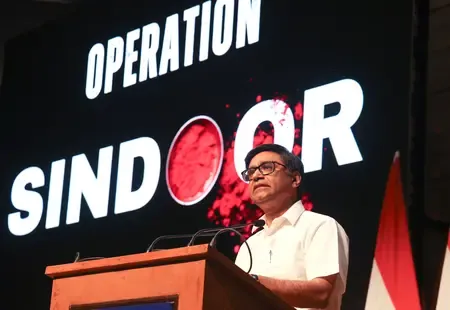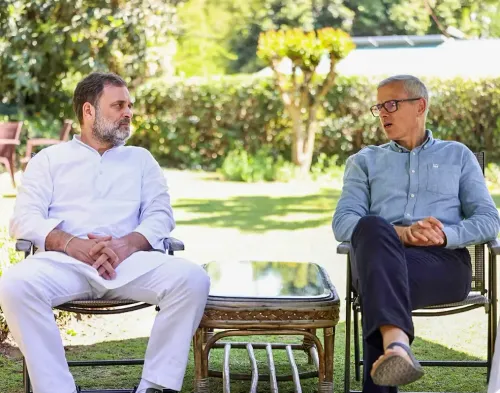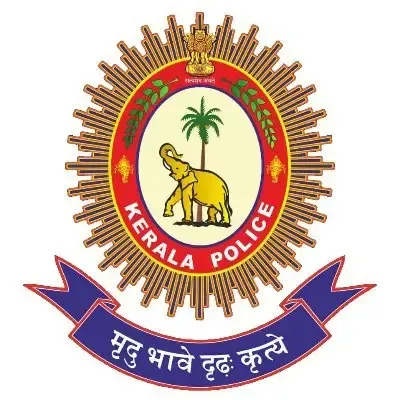Is Pakistan Distorting the Narrative of Operation Sindoor?

Synopsis
Key Takeaways
- Pakistan is engaging in a coordinated disinformation campaign.
- Operation Sindoor has prompted a shift in the narrative.
- Experts highlight the use of misleading visuals and fabricated stories.
- Fact-checking is essential in the face of misinformation.
- Public perception is being manipulated through these tactics.
New Delhi, May 7 (NationPress) Pakistan is attempting to manipulate the narrative surrounding the triumph of "Operation Sindoor", conducted by the Indian Armed Forces within Pakistan and Pakistan-occupied Kashmir (PoK), according to insights from security analysts.
These analysts indicated that in response to India's decisive actions, Pakistan has initiated a comprehensive disinformation campaign, seeking to shift attention and control the narrative through a flurry of deceit and digital theatrics.
The incidents highlight a systematic and coordinated effort by Pakistan to mislead the media, distort the global narrative, and manipulate public perception following India's successful operations under "Operation Sindoor".
“By inundating social media with recycled images, irrelevant videos, and unfounded claims, Pakistan is trying to obscure the true results of the operation and fabricate a perception of a robust counter-response. This tactic appears designed to divert attention from the success of India's operation while attempting to sway both domestic and international opinions through false representations of battlefield events,” noted an expert.
What began as a precise and effective military initiative by the Indian Armed Forces has escalated into a chaotic online propaganda conflict.
Pro-Pakistan social media accounts and even prominent political figures are intentionally disseminating fabricated news, conjuring stories of miraculous military triumphs and heroic responses that simply do not exist.
It has been further emphasized that in a blatant effort to hijack the narrative and distract from the reality on the ground, Pakistan’s state-linked accounts have resorted to their usual tactics—recycling outdated images, misrepresenting old videos, and fabricating entirely false claims.
“Their aim is evident: to inundate the information space with so many falsehoods that it becomes challenging to discern fact from fiction. This is not merely misinformation; it represents a deliberate, synchronized campaign crafted to distort reality, mislead the public, and manipulate perceptions across the region,” another security expert stated.
One notable instance involves a viral image inaccurately alleging that the Pakistan Army shot down an Indian Rafale jet near Bahawalpur.
“This image was debunked by PIB Fact Check, which confirmed it was actually from a MiG-21 crash in Moga, Punjab, back in 2021, entirely unrelated to the current situation,” the expert explained.
Additionally, a misleading video surfaced, falsely claiming that the Indian Army had raised a white flag and surrendered at Chora Post.
“This fabricated narrative was further propagated by Pakistan’s Minister Attaullah Tarar, who publicly supported the claim without any evidence. By giving official credence to an unverified and evidently false story, Tarar not only misled his own public but also actively contributed to the propaganda effort,” they continued.
Another deceptive post shared a video claiming that the Pakistan Air Force targeted the Srinagar airbase.
However, this footage was traced back to sectarian conflicts in Khyber Pakhtunkhwa, Pakistan, that took place in early 2024, having no relation to Kashmir or any recent airstrikes.
Meanwhile, rumors circulated alleging that Pakistan had destroyed an Indian Brigade Headquarters, a claim entirely fabricated and lacking any factual basis.
Another outdated image, this time depicting a MiG-29 crash in Barmer, Rajasthan, from September 2024, was recirculated by pro-Pakistan social media accounts to suggest recent losses by the Indian Air Force, which did not occur.
Pakistan’s Defence Minister Khawaja Asif also made an unfounded statement claiming that Indian soldiers had been captured during the recent military operations, a statement that was later discredited and withdrawn.
He asserted that Indian soldiers had been taken prisoner following Pakistan’s response to India’s Operation Sindoor. However, these assertions were quickly dismissed as false, with no evidence supporting the claim of captured soldiers.
The Pakistani Defence Minister subsequently retracted his statement, acknowledging that no Indian soldiers had been apprehended.









